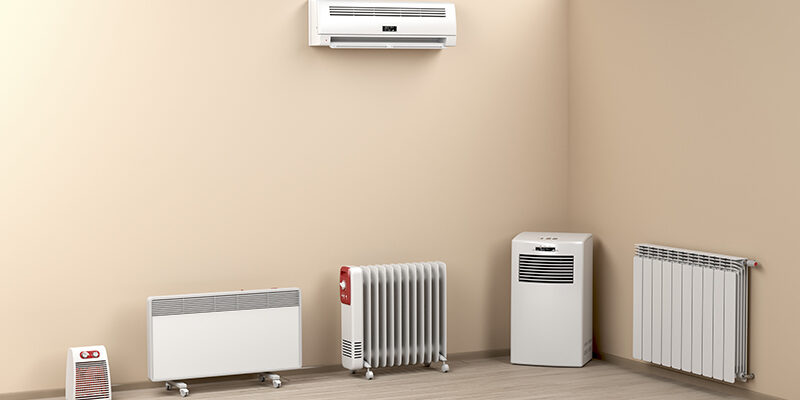Types of AC systems
When it comes to AC systems, there are several different types to choose from. Central AC is the most common type of system, and it works by circulating cool air through a network of ducts. Split AC systems also use ducts, but they have two units: one inside the home and one outside. Mini-split AC systems are similar to split AC systems, but they don’t require ducts. Instead, they have small units that can be mounted on walls or ceilings. Finally, portable AC units can be moved from room to room as needed. They work by drawing in hot air and circulating it over a cooling coil. When choosing an AC system, it’s important to consider the size of your home, your budget, and your specific cooling needs.
The benefits of each type
Split-system air conditioners are the most common type of AC unit. They include an indoor unit, which is usually installed in a room or basement, and an outdoor unit, which is mounted on a wall or on the ground. Split system units are very efficient and can be used to cool multiple rooms. Central air conditioners are another option for cooling your home. They work by circulating cool air through a system of ducts. Central air conditioners are very efficient, but they can be expensive to install. Cooling your home with portable air conditioners is another option. Portable units can be moved from room to room as needed and do not require any ductwork. However, portable units can be noisy and may not be as energy-efficient as other types of AC units. When choosing an AC unit for your home, it is important to consider your specific needs. Split systems and central air conditioners are the most efficient options, but portable units may be more convenient if you need to move the unit from room to room. Regardless of the type of AC unit you choose, you will enjoy the benefits of cool, comfortable air in your home.
Factors to consider when choosing an AC system
When it comes to choosing an AC system, there are some factors to consider. The first is the size of the unit. It is important to choose a unit that is appropriately sized for the space that it will be cooling. If the unit is too small, it will have to work overtime to cool the space, leading to higher energy bills and a shortened lifespan. Conversely, if the unit is too large, it will cool the space too quickly, resulting in wasted energy and uneven temperatures. The second factor to consider is the features of the unit. Many AC units now come with features like timers, energy-saving modes, and remote control. These features can help reduce energy consumption and make the unit easier to use. Finally, it is important to consider the price of the unit. The price of AC units can range from a few hundred dollars to several thousand dollars. It is important to choose a unit that fits both your budget and your cooling needs. By taking all of these factors into account, you can be sure to choose an AC system that is right for you.
Maintenance tips for your AC system
As the temperatures start to rise, it’s important to make sure your air conditioning system is in good working order. Here are a few maintenance tips to keep your AC running smoothly all summer long:
- Schedule an annual tune-up with a qualified HVAC technician. This will help ensure that your system is operating at peak efficiency and can help prevent expensive repairs down the road.
- Keep the area around your outdoor air conditioning unit clean and clear of debris. This will allow the unit to operate more efficiently and prevent potential damage.
- Change your air filter regularly. A dirty filter can restrict airflow and cause your AC system to work harder than necessary, driving up energy costs.
Following these simple tips will help keep your AC system running smoothly all summer long. If you have any concerns about your system, be sure to contact a qualified HVAC technician for assistance.


